Memoirs
of
Germaine Bouffard Bastille
Born August 1, 1917
written on July 1, 1982
I have given much thought to what
could possibly be my earliest recollections of home. I thought maybe my very
earliest would be at a time we lived at 1152 Slade Street, Fall River,
Massachusetts.
To begin with I was born in
Canada. I was one year old when all the family immigrated to the United States,
by then the oldest ones of the family had established a home here by coming to
the U.S. during the winter months to work.
Well I seem to remember at one
time my mother was sick in bed and her bed faced the bedroom door and the priest Pere 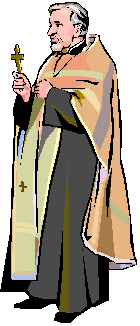 Machildon would have all us children kneel facing my mother’s room and
say prayers for her. I was the youngest so I was first in line, then he would
pick me up on his lap and he would say "You must be eating your molasses
because you have rosy cheeks" and I would immediately go and eat more of
it. At that time we would carry an empty milk quart bottle to the store and they
would fill it from a barrel, nothing was pre-packaged.
Machildon would have all us children kneel facing my mother’s room and
say prayers for her. I was the youngest so I was first in line, then he would
pick me up on his lap and he would say "You must be eating your molasses
because you have rosy cheeks" and I would immediately go and eat more of
it. At that time we would carry an empty milk quart bottle to the store and they
would fill it from a barrel, nothing was pre-packaged.
After that I remember being flower
girl, I was five years old and they would have me recite poems and one of them
was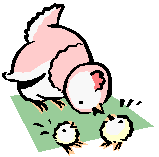 "C’est la poulette grise qui a pond dans l’eglise, elle a pond un
ti coco pour le petit qui va faire do..do". And I remember eating a lot and
drinking lots of tonic. Then I remember starting first grade in a small building
teaching first three grades only. I think I only went there one year because
they had built and opened a new catholic school, we walked to
"C’est la poulette grise qui a pond dans l’eglise, elle a pond un
ti coco pour le petit qui va faire do..do". And I remember eating a lot and
drinking lots of tonic. Then I remember starting first grade in a small building
teaching first three grades only. I think I only went there one year because
they had built and opened a new catholic school, we walked to 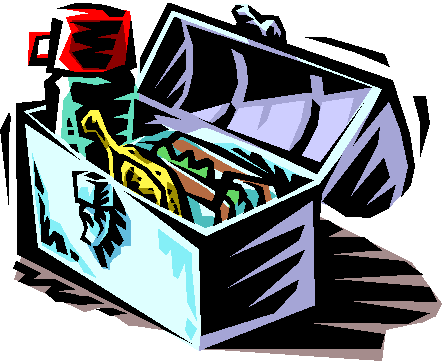 school always, a
couple of miles, and during the severe winter my mother would wrap our scarves
over our mouth and nose, when it got warmer we would come home for lunch and
sometimes we would have to carry lunches to the mill workers, come home and eat
our lunch, and go back to school, that was at least five miles at lunch time.
school always, a
couple of miles, and during the severe winter my mother would wrap our scarves
over our mouth and nose, when it got warmer we would come home for lunch and
sometimes we would have to carry lunches to the mill workers, come home and eat
our lunch, and go back to school, that was at least five miles at lunch time.
We had many chores to do and we
had to do those first, then we had some play time. Springtime was strawberry
season and my mother would buy crates of them, then comes tomatoes, peaches,
then fall would be piccalilli.
We were a very religious family,
and every night after supper 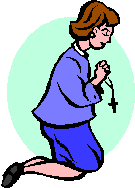 we would dim the lights and all kneel and say the
rosary. If there was anything going on at church, such as a mission, Sunday
vespers, we always had to go. In the summertime I remember going with my mother,
then stopping to visit her sister, then at the store for an ice cream cone.
we would dim the lights and all kneel and say the
rosary. If there was anything going on at church, such as a mission, Sunday
vespers, we always had to go. In the summertime I remember going with my mother,
then stopping to visit her sister, then at the store for an ice cream cone.
We always had lots of company, we
were always anxious to get home to see who was there, then we would double up on
beds, and sometimes sleep on the floor in the living room.
In the summertime after our work
was done , usually afternoon we would gather all the little ones and go to a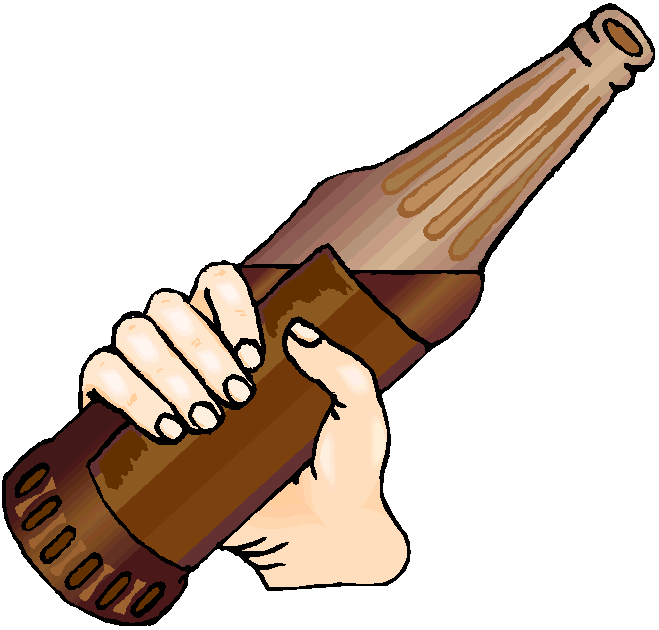 playground, my mother would give us a few coins and we could buy a bottle or two
of tonic, they would take it out of a big bin and all the bottles were covered
with ice. That was our treat for the afternoon.
playground, my mother would give us a few coins and we could buy a bottle or two
of tonic, they would take it out of a big bin and all the bottles were covered
with ice. That was our treat for the afternoon.
We had a bakery truck that would
come early in the morning, groceries were delivered at home, the wagon with
fresh fruit and vegetables were peddled down the street every day, even the fish
truck would come down at least every Friday. Sometimes for a snack we would cook
half a dozen crabs at 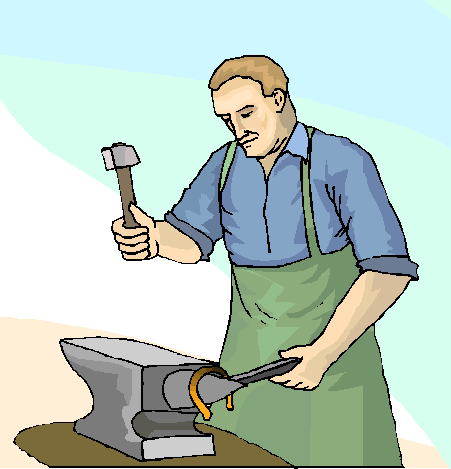 night and eat them. A block from our home, in a store
(sort of) there was a blacksmith (farrier) we would stop and watch them put on
horseshoes (pettig) and I was always amazed at the heat and pounding, and the
horses didn’t seem to mind.
night and eat them. A block from our home, in a store
(sort of) there was a blacksmith (farrier) we would stop and watch them put on
horseshoes (pettig) and I was always amazed at the heat and pounding, and the
horses didn’t seem to mind.
On Shrone Tuesday my mother would
make taffy, the living room was closed off in winter and we would go into that
room and butter our hands and pull the taffy, twist it and cut it into bite size
pieces. We would do it again on mid-lent when the restrictions for eating were
lifted.
In the summer we had to do a lot
of canning. We would buy crates of strawberries, tomatoes, peaches and spend
many summer days just canning, then came fall and it was time for piccalilli.
When we had to carry money to school or store , we had to take a handkerchief
(we made our own) and tie the coin in the corner, we couldn’t afford to lose a
penny. I remember being given a beautiful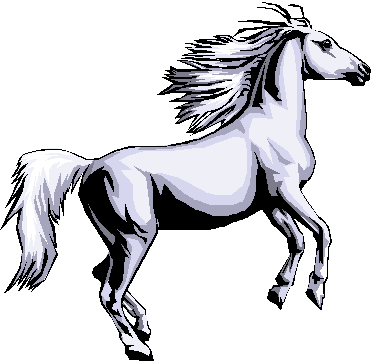 crystal candy horse of clear sugar,
fairly large it was, too beautiful to eat so my mother suggested I put it on the
piano in the closed up living room where it was cool. Everyday I would go and
look at it. One day when I went to look the head was gone, my brother Henry had
eaten it off. It was a disaster!
crystal candy horse of clear sugar,
fairly large it was, too beautiful to eat so my mother suggested I put it on the
piano in the closed up living room where it was cool. Everyday I would go and
look at it. One day when I went to look the head was gone, my brother Henry had
eaten it off. It was a disaster!
Either for breakfast or to make
lunches, I would have to go across the street to the owner’s house and wake
him up. The store opened at 7 but the workers left before that, he would come to
the door pulling on his pants. Then at rosary time my mother would suddenly
remember something she needed before the store closed at 6, so as she prayed and
while the others answered she would say "don’t forget to bring
this", then she would say hail Mary and on she went, then she’d say "now
hurry before they close".
A big treat was meeting the
returning mill workers with their lunch bucket of metal, with small dividers fit
on top and see what was left because they were allowed treats we weren’t
allowed to have.
My brother Albert was very good to
all of us, he would furnish transportation to most of the neighborhood because
few 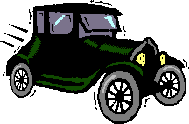 families had cars, and of course my mother would collect others from the
area to furnish transportation. When there were missions during Lent in mid
winter when he couldn’t pick up the ladies at the end of the service, he would
sometimes arrange for one of his friends to do it. Sometimes letting them use
his car or their own.
families had cars, and of course my mother would collect others from the
area to furnish transportation. When there were missions during Lent in mid
winter when he couldn’t pick up the ladies at the end of the service, he would
sometimes arrange for one of his friends to do it. Sometimes letting them use
his car or their own.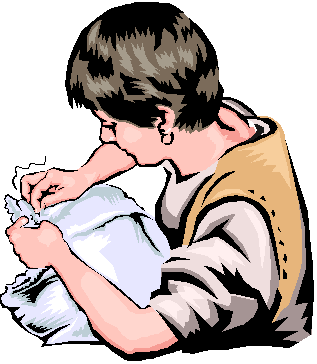
We made all our own clothes except
shoes, good outgrown clothes or partially worn clothes was taken apart and the
good sections used over. We made our dolls with rags, and scooters with old
skates and orange crates. Of course the boys would make those. The boys would
save their coins to buy a used bike but we young girls were not allowed to ride
them, not lady-like, no slacks then.
The winter my mother came to the
states to work (Eva’s letter), she came so she could earn some money working
at the mills to have money to have dental plates made.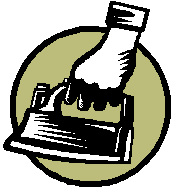
Rose and I did a lot of baby
sitting for our older brothers and sisters. I remember doing big baskets of
ironing, there was no "wash and wear" in those days, so
everything was starched and sprinkled so there was always ironing waiting to be
done.
With a large family there was
always an occasion to celebrate, showers, weddings, birthdays, etc., everyone
pitched in, most family members lived in the same neighborhood. I think we all
worked hard and helped each other when it was needed, it was a united family.
Germaine


[Home] [Up] [Eva Bouffard] [Diana Bouffard] [Wilfred Bouffard] [Alice Bouffard] [Ida Bouffard] [Rose Bouffard] [Germaine Bouffard] [Merina Bouffard]

![]()